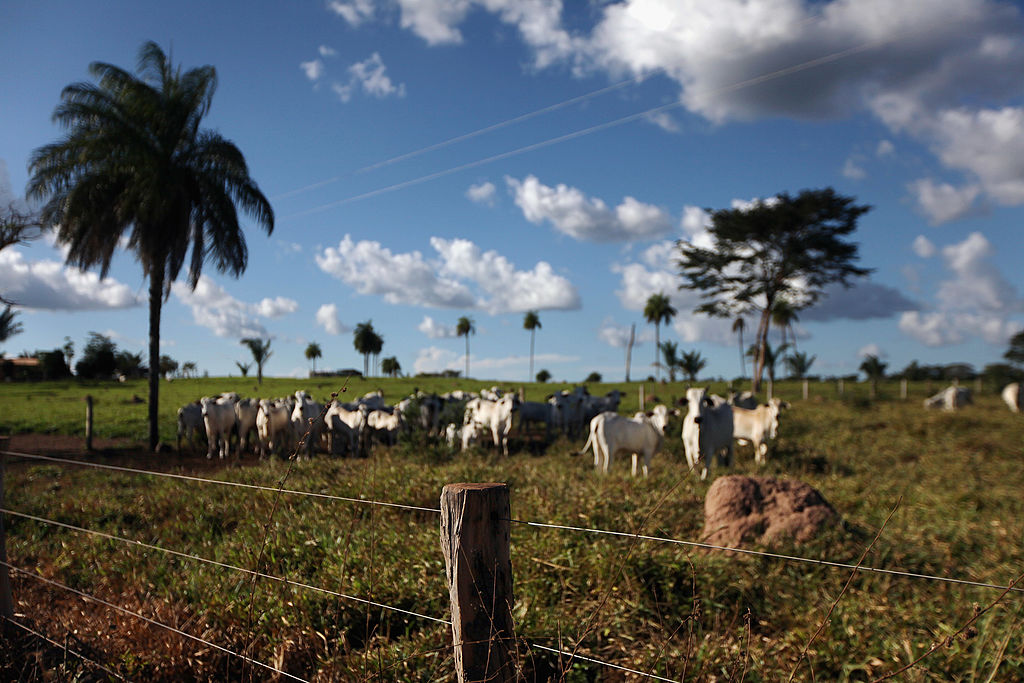
Pennsylvania State University and the University of São Paulo researchers discovered that dairy cows who were exposed to heavy metals from drinking water develop antimicrobial-resistant genes. The pathogens within the cows have several implications for human health via the food chain.
The study was recently published in the journal Evolutionary and Genomic Microbiology after observing dairy cattle near Mariana City, Brazil. In 2015, the Fundao Tailings Dam had a mining rupture, releasing nearly 11 billion gallons of iron ore waste into the Doce river basin.
Evidence antimicrobial-resistant bacteria were found in the genes of 16 dairy cattle in 2019. Their genetic evidence was compared to 16 dairy cows from an unaffected farm.
Heavy Metals and Antimicrobial Resistance
It is the first study to reveal how long-term exposure to heavy metals in the environment could lead to genetic changes, said Professor Erika Ganda from Penn State. Moreover, it is possible that bacterial antimicrobial resistance could be transferred to meat and dairy consumers.
The genetic analysis in the cows included 28 phyla of bacteria including Proteobacteria and Bacteroidetes. The toxic waste would have possibly also made its way into food crop water systems.
While heavy metals naturally occur in bodies of water and soil, the accumulation of heavy metals from mining activity results in toxic waste. For humans, exposure to heavy metals could result in gastrointestinal cancer, affect fetal growth, and result in neurological diseases.
Previous research determined that increased heavy metals in the environment are associated with the prevalence of AMR in bacteria. Also known as the co-resistance phenomenon, or similar genes in the same bacteria developing mutations.
Ganda said that one gene developing heavy metal resistance could be transferred to similar genes. At the same time, antibiotics and heavy metals have similar resistance mechanisms.
Read Also: Drug-Resistant Bacteria Can Be Identified by Newly Developed PARGT Software
Implications for Human Health
According to the World Health Organization, antimicrobial resistance (AMR) is among the top 10 global public health threats facing humanity. Factors such as lack of clean water and sanitation, overuse of antimicrobials, and pollution contribute to AMR and microorganisms developing AMR ("superbugs"). Finding solutions to battle AMR and toxic waste in water systems would tackle two sustainable development goals (SDG): good health and well-being (SDG3) and clean water and sanitation (SDG6).
If more organisms develop AMR such as parasites and viruses, available drug treatments may become ineffective. This also increases the risk of severe illnesses and disease outbreaks.
The researchers work with the one-health perspective where collaborative research focuses on the interaction between people, animals, and the environment. The research is a good example, said Ganda, of acknowledging one-health problems.
This environmental disaster is now only about people and animals killed years ago when the dam rapture caused flooding, said Ganda. It also involves persistent water contamination affecting dairy cattle and threatening human health as well through the food system.
Read Also: Princeton Researchers Discover 'Poison Arrow' Antibiotic That Resists Immunity
Check out more news and information on Antibiotic Resistance on Science Times.
"heavy" - Google News
November 17, 2020 at 10:00PM
https://ift.tt/38QTjvp
Heavy Metal Toxins Genetically Alter Dairy Cows To Become More Antimicrobial-Resistant - Science Times
"heavy" - Google News
https://ift.tt/35FbxvS
https://ift.tt/3c3RoCk
heavy
Bagikan Berita Ini














0 Response to "Heavy Metal Toxins Genetically Alter Dairy Cows To Become More Antimicrobial-Resistant - Science Times"
Post a Comment